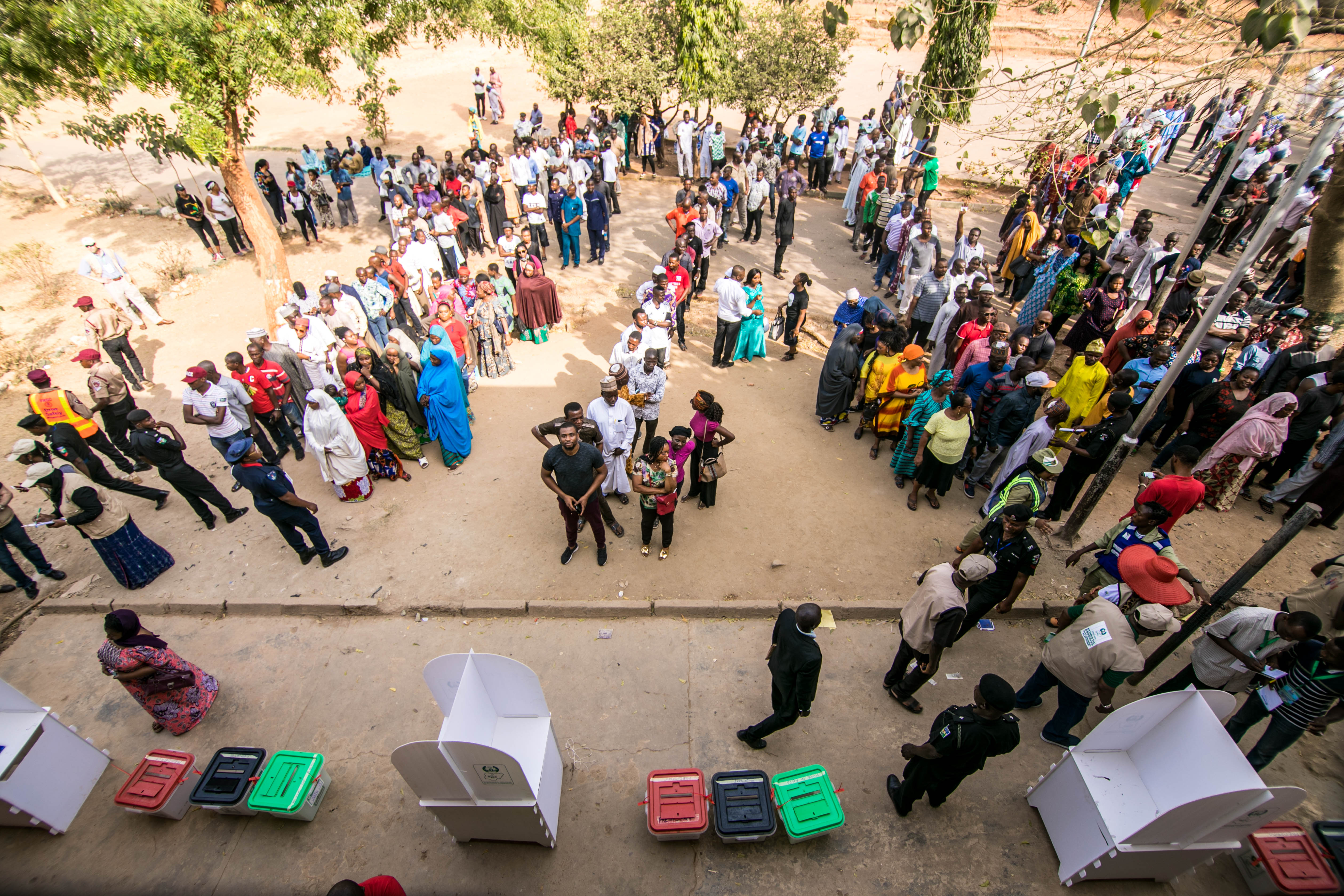Research from Nigeria Highlights Need for Elected Officials to Engage Citizens
Washington, D.C.— Responsive governance has been a challenge at both the state and national levels in Nigeria. As the findings of a 2018 poll conducted by the International Republican Institute’s (IRI) Center for Insights in Survey Research (CISR) in Nigeria’s Adamawa, Bauchi, Ebonyi and Sokoto states illustrate, although citizens have many pressing concerns, there is little communication between government officials and the citizens they serve. According to the poll, 77 percent of respondents in Ebonyi, 73 percent of respondents in Bauchi, 64 percent of respondents in Adamawa, and 53 percent of respondents in Sokoto said that their state elected officials had not directly communicated with them during the previous 12 months. It is therefore not surprising that some 62 percent of respondents in Adamawa, 61 percent of respondents in Ebonyi, 58 percent of respondents in Bauchi and 50 percent of respondents in Sokoto believed that they had no or little influence on state government decisions and policies.
This lack of communication hinders effectively addressing some of the pressing concerns of Nigerians in these four states: insecurity, poverty, education, corruption and access to electricity. In Adamawa state, the top three concerns were insecurity, poverty, and corruption. In Bauchi state, education, insecurity and poverty topped the list. In Ebonyi state, the top concerns were poverty, electricity and corruption. In Sokoto state, insecurity, poverty and electricity were the most prevalent concerns.

The poll also showed that views about the democratic progress made in Nigeria since the 2015 elections varied by region. Citizens in Adamawa and Ebonyi states were less optimistic, with 64 percent of respondents in Adamawa and 71 percent of respondents in Ebonyi saying that Nigeria had either become less democratic or stayed the same since the 2015 national elections. Sokoto and Bauchi states were more optimistic, with 53 percent of respondents in Sokoto and 72 percent of respondents in Bauchi saying that Nigeria had become more democratic since the 2015 national elections.
Public opinion surveys are valuable tools for assessing citizens’ perceptions of government, political parties and democratic progress in the country. These poll results point to the need for officials, both in political parties and government, to interact more with their constituencies, listen to citizens’ priorities, and demonstrate how their policies and actions respond directly to those priorities.
Communication between elected officials and the citizens they serve is important to accountability and responsive governance. IRI’s Responsive Political Party Program supports political parties and elected officials in Nigeria’s Adamawa, Bauchi, Ebonyi and Sokoto states to develop citizen-centered policies and platforms and build trust with the citizens they represent. IRI, which has been present in Nigeria since the transition to civilian democratic governance in 1998, will continue to support political parties and state legislatures in Nigeria as they work to respond to citizens’ priorities and increase public trust in democratic institutions.
Methodology
This survey was conducted by Kantar Public Nigeria, trading as TNS RMS Nigeria Limited, on behalf of the Center for Insights in Survey Research. The survey was conducted in four Nigerian states — Adamawa, Bauchi, Ebonyi and Sokoto — through a Computer Assisted Personal Interviewing (CAPI) system to administer face-to-face interviews in respondents’ homes from October 23 to December 9, 2018. The sample consisted of n = 6,477 adult respondents aged 18 years and older across the four selected states (Adamawa {n = 1554}, Bauchi {n = 1,592}, Ebonyi {n = 1,621}, Sokoto {n = 1,710}). The sampling approach adopted was a multi-stage probability sampling method using the geo-spatial grid-based method. The sample was stratified by urban/rural residency status of the Local Government Areas (LGAs). The margin of error does not exceed ± 2.0 percent.
This survey is made possible by the generous support of the American people through the United States Agency for International Development (USAID). The opinions expressed herein are those of the author(s) and do not necessarily reflect the views of USAID or the United States Government.
Top